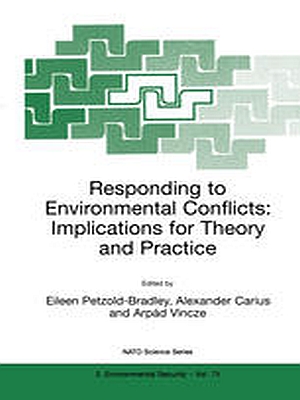In January 1999, Ecologic conducted the workshop on "Responding to Environmental Conflicts: Implications for Theory and Practice". The aim was to discuss how to prevent environmental conflicts using approaches in different policy fields. In particular, non-governmental ways to tackle the complex dynamics of this type of conflict were considered.
From 21-23 January 1999, Ecologic Institute directed in collaboration with the Zrínyi Miklós University of National Defence in Budapest, Hungary, a NATO Advance Research Workshop (ARW) entitled "Responding to Environmental Conflicts: Implications for Theory and Practice". The NATO ARW in Budapest provided a working forum bringing together scholars in the area of environmental change, international relations, peace and conflict research, as well as specialists on foreign and security policy. Participants were drawn from government, research institutes, universities, and non-governmental organizations in Western, Central and Eastern Europe, the former Soviet Union, Central Asia and North America.
The aim of the ARW was to discuss the implications of possible policy approaches in the areas of environmental and development policy, foreign and security policy, economic co-operation and other response areas to be identified towards environmentally-induced conflicts as well as non-governmental options to tackle the complex dynamics of this type of conflict.
The ARW allowed for intense discussion of:
- the conceptual, methodological and theoretical aspects of the relationship between environment and security, and
- case studies to gain a more regional perspective of environmental conflicts and security challenges for countries in transition (i.e. Central and Eastern Europe, Baltic States, Central Asia, etc.).
The workshop discussions also focused on the use and further development of existing policy and legislative instruments and strategies in the respective policy areas to address environmental degradation, resource scarcity and political, social and economic capacities in regard to their preventive function. The workshop also discussed the role of risk assessment and early warning for conflict resolution and available methods and databases for modelling environmental conflict.
The workshop proceedings were published by Kluwer Academic Publishers and made available in 2001 as a scientific report, part of the NATO Science Series: Sub-series 2. Environment.




